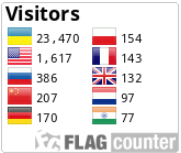TESTING AS A LANGUAGE ASSESSMENT TOOL: UKRAINIAN EXPERIENCE
DOI:
https://doi.org/10.28925/2617-5266.2023.87Keywords:
assessment, knowledge and skills, test, test design, test-taskAbstract
There are lots of books devoted to test design techniques for teachers to critically evaluate and reflect on assessment items developed by them and for them. However, the problem is whether teachers, who are “jacks of all trades,” are assessment and test-writing literate, whether they are aware of assessment purposes, they understand and can interpret methods and principles of test item design. The question arises whether, with the help of tests, teachers can ensure valid inferences about test takers’ knowledge and skills, and whether teachers who become item writers and test designers have enough knowledge and skills for this complicated task. The article contributes to helping Ukrainian university teachers reflect on their assessment and evaluation knowledge and skills. Hopefully, the article may raise awareness of the importance of a deeper theoretical and practical expertise in high-quality assessment for language education. Besides, the article may stimulate teachers’ attention and focus on complicated problems around test creation, administration, and analysis.
Downloads
References
Alderson, C., Clapham, C., & Wall, D. (1995). Language test construction and evaluation. Cambridge, UK: Cambridge University Press.
Ashraf, A. & Zaki, S. (2019). Language assessment in higher education: Challenges and consequences. Pakistan Journal of Education, 36(3), 163-185. https://doi.org/0.30971/pje.v36i3.437
Bachman, L.F. (2013). Ongoing challenges in language assessment. Evaluation, Methodology, and Interdisciplinary Themes, 3(12), Interdisciplinary Themes. https://doi.org/10.1002/9781118411360.wbcla128
Brown, H. D., & Abeywickrama, P. (2019). Language assessment: Principles and classroom practice. New York, USA: Pearson Longman.
Brown, J.D. & Bailey, K.M. (2008). Language testing courses: What are they in 2007? Language Testing, 25(3), 349–383. https://doi.org/10.1177/0265532208090157
Brown, J. D. (2011). Testing in language programs: A comprehensive guide to English language assessment. New York, USA: McGraw Hill.
Buck, G. (2001). Assessing listening. Cambridge, UK: Cambridge University Press.
Carr, N. (2011). Designing and Analyzing Language Tests. Oxford: Oxford University Press.
Cohen, A. (1994). Assessing Language Ability in the Classroom. Boston: Heinle and Heinle Publishers.
CEFRL. (2001). Common European Framework of Reference for Languages: Learning teaching, assessment. Cambridge: Cambridge University Press. Council of Europe.
De Benedetti, K. (2006). Language testing: Some problems and solutions. Universidad de Guanajuato, México, 30(1), 25-41. https://www.mextesol.net/journal/public/files/2bbd95c84cfda1581bedde28ef1333ae.pdf
Davies, A. (1990). Principles of Language Testing (Applied Language Studies). Blackwell Pub.
Douglas, D. (2010). Understanding Language Testing. London: Hodder-Arnold.
Eckes, T, & Althaus, H.J. (2020). Language proficiency assessments in higher education admissions. In Oliveri, M.E., & Wendler, C. (Eds). Higher Education Admission Practices: An International Perspective, (pp.256-275). https://doi.org/10.1017/9781108559607.015
Green, A. (2014). Exploring language assessment and testing: Language in action. Oxon: Routledge.
Giraldo, F. (2019). Designing Language Assessments in Context: Theoretical, Technical, and Institutional Considerations. HOW, 26(2), 123-143. https://orcid.org/0000-0001-5221-8245
Hubley, A.M. & Zumbo, B.D. (1996). A dialectic on validity: Where we have been and where we are going. The Journal of General Psychology, 123(3), 207-215. https://doi.org/10.1080/00221309.1996.9921273
Hughes, A. (2002). Testing for language teachers: Second edition. Cambridge: Cambridge University Press.
McNamara, T. (2004). Language testing. In Davies, A. & Elder, C. (Eds.). The handbook of applied linguistics (pp. 763-783). Oxford: Blackwell.
Morrison, A., & Sepulveda-Escobar, P. (2022). Chilean English as a foreign language teacher educators’ conceptions and practices of online assessment. RELC Journal. https://doi.org/10.1177/00336882221079059
Mospan, N. V., Ognevyuk, V. O., & Sysoieva, S. S. (2022). Emergency higher education digital transformation: Ukraine’s response to the COVID-19 pandemic. Information Technologies and Learning Tools, 89(3), 90–104. https://doi.org/10.33407/itlt.v89i3.4827
Ramirez, A. (2020). Challenges in the Design and Implementation of an English Placement Test for a Colombian Public University. Gist Education and Learning Research Journal, 21, 191-208. https://doi.org/10.26817/16925777.825
Rapi, L. & Miconi, H. (2014). Theoretical and practical problems in designing tests for foreign language programs. European Scientific Journal, 10(29), 156-164. https://doi.org/10.19044/esj.2014.v10n29p%25p
Published
How to Cite
Issue
Section
License
Copyright (c) 2023 The Modern Higher Education Review

This work is licensed under a Creative Commons Attribution-NonCommercial 4.0 International License.













